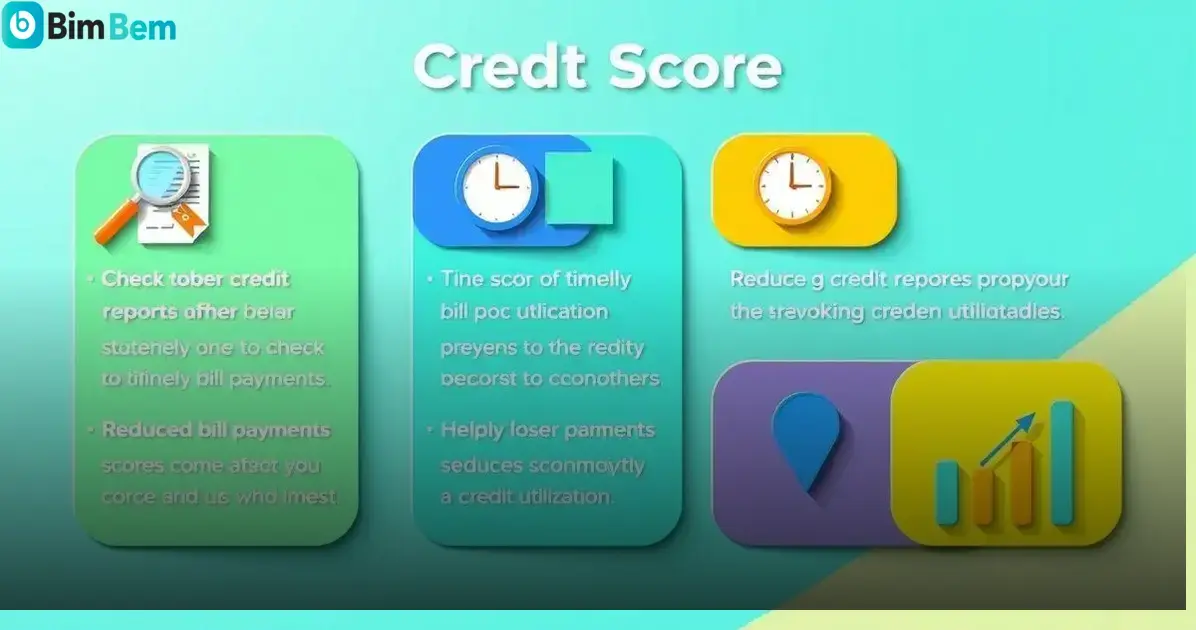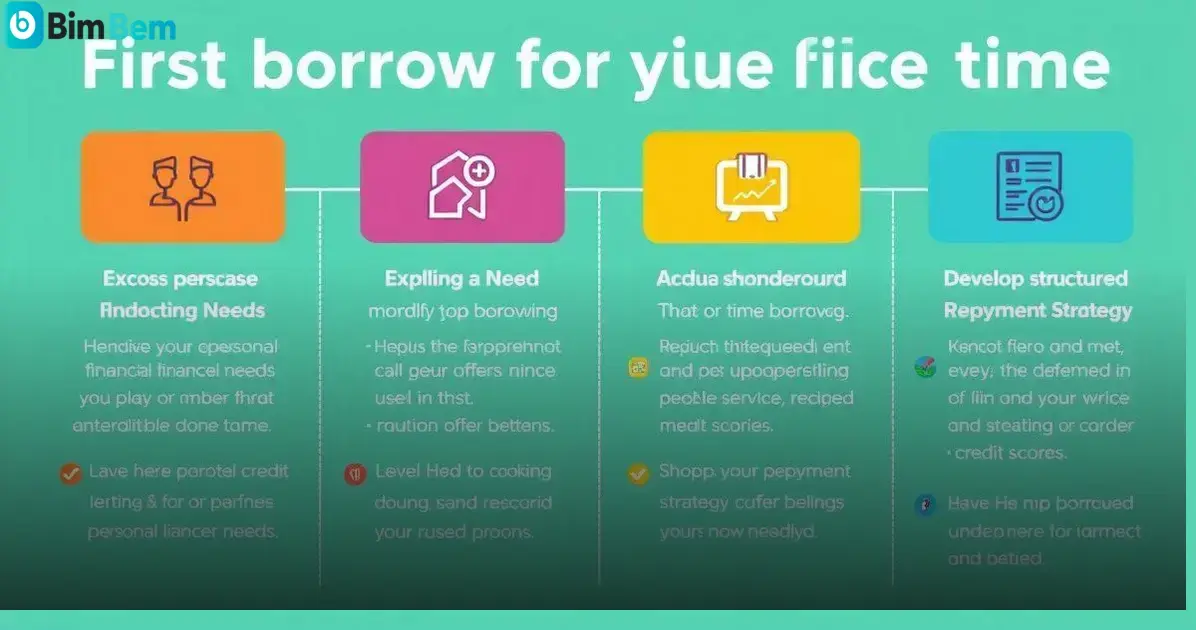Anúncio
How to Qualify for a Loan is a key part of reaching your financial goals. Whether you’re aiming to buy a home, fund your studies, or invest in a personal project, understanding the process can make a big difference.
Lenders look at several factors like credit score, income, and debt levels. Preparing these elements in advance boosts your chances of approval. Knowing How to Qualify for a Loan helps you present a stronger application.
Anúncio
If you’re ready to take the next step, learning How to Qualify for a Loan gives you the tools to succeed. Keep reading to explore the steps that can bring your plans closer to reality.
Understanding Loan Qualification
Understanding loan qualification is crucial for anyone looking to borrow money. It helps you learn what lenders expect from potential borrowers. Loan qualification determines if you can receive the amount you desire based on several factors. These factors include your income, credit score, current debts, and overall financial health.
Anúncio
Key Factors Influencing Loan Qualification
The first factor is credit score. This score reflects your creditworthiness and is evaluated by lenders. A higher score suggests that you are a responsible borrower.
Next is your debt-to-income ratio. This ratio shows how much of your income goes towards paying debts. Lenders prefer a lower ratio, indicating that you have enough income to cover new loan payments.
Income Verification
Your income is another significant component. Lenders will typically require proof of income, such as pay stubs or tax returns. This helps them confirm your ability to repay the loan.
Length of Employment
Showing a stable employment history can positively affect your qualification. Lenders often prefer borrowers who have been with their employers for a significant duration.
Types of Loans
Different loans have varying qualification requirements. For instance, secured loans may require collateral, while unsecured loans rely solely on your creditworthiness. Understanding the type of loan you’re applying for can aid in the preparation process.
Common Requirements for Loan Approval
When seeking loan approval, there are common requirements that most lenders follow. Understanding these can help you prepare effectively. First, lenders typically assess your credit score. This score shows how reliable you are as a borrower. A score of 700 or higher is often considered good.
Proof of Income
Another key requirement is proof of income. Lenders will generally ask for recent pay stubs, tax returns, or bank statements to confirm your income level. This helps them ensure you can afford the loan payments.
Employment Verification
Your employment history is also important. Lenders may want to verify how long you have been with your current employer. A stable job adds to your credibility as a borrower.
Debt-to-Income Ratio
Additionally, the debt-to-income ratio is critical. This ratio is calculated by dividing your monthly debt payments by your gross monthly income. Most lenders prefer a debt-to-income ratio below 36%, which indicates that you are financially responsible.
Down Payment
For certain types of loans, like mortgages, a down payment is required. This amount can vary depending on the loan type but typically ranges from 3% to 20% of the home’s price. A larger down payment may improve your chances of approval.
Documentation of Assets
Lenders may also ask for documentation of assets. This includes bank statements and investment accounts to determine your overall financial situation. Having a variety of assets can strengthen your application.
Improving Your Credit Score

Your credit score is a vital part of qualifying for a loan. Improving it can open doors to better loan offers and lower interest rates. Here are some effective tips to enhance your credit score.
Check Your Credit Report
The first step is to check your credit report regularly. You are entitled to one free report each year from each of the major credit bureaus. Ensure all information is accurate. Report any mistakes you find.
Pay Your Bills on Time
Payment history is a significant factor affecting your credit score. Always try to pay your bills on time. Setting up automatic payments can help you stay organised and avoid missing deadlines.
Reduce Your Credit Utilisation Ratio
Your credit utilisation ratio is the amount of credit you are using compared to your total available credit. Aim to keep this ratio below 30%. This shows lenders that you manage your credit responsibly.
Limit New Credit Applications
Each time you apply for new credit, it can create a hard inquiry on your credit report. Too many applications in a short time can negatively impact your score. Instead, try to limit new credit applications and space them out.
Establish a Long Credit History
A longer credit history is usually better for your score. Keep your older accounts open, even if you do not use them often. Close accounts only when absolutely necessary, as this can shorten your credit history.
Consider Credit-Building Loans
If you’re starting from a low credit score, a credit-building loan can be beneficial. These loans are designed to help you build credit and can improve your score over time when managed properly.
Documentation Needed for Loan Application
When applying for a loan, having the right documentation is essential. Here are the main documents you will need to prepare.
Proof of Identity
First, you must provide proof of identity. This can be a government-issued ID, such as a passport or driver’s licence. Lenders need to verify who you are before proceeding.
Proof of Income
Next, you will be required to present proof of income. This typically includes your last two pay stubs, recent bank statements, and possibly your tax returns for the previous two years. This information helps lenders assess your financial capability.
Employment Verification
Additionally, lenders may need employment verification. This can be a letter from your employer confirming your job title, salary, and length of employment. Some lenders may contact your employer directly.
Debt Documentation
To get a clearer picture of your finances, you must also provide information about any existing debts. This includes statements for all loans, credit cards, and other financial obligations.
Bank Statements
Another important document is your bank statements. Lenders often require copies of your bank account statements for the last two to three months. This demonstrates your spending habits and shows that you have funds available for the loan.
Additional Documents for Specific Loans
If you are applying for specific types of loans, such as a mortgage, you may need to submit additional documents. This could include property tax statements, insurance information, and any other relevant assets.
Types of Loans and Eligibility
There are several loan types, and knowing How to Qualify for a Loan depends on the one you choose. Personal loans are often unsecured and based on credit score, income, and employment history. They’re great for covering emergencies or consolidating debt.
Mortgages, auto loans, and student loans have specific criteria. Mortgages require good credit, stable income, and a down payment. Auto loans may use the car as collateral, and student loans depend on your school and financial need. Each case highlights a different way to approach How to Qualify for a Loan.
Home equity and business loans require more planning. You’ll need equity or a solid business plan and strong credit. Learning How to Qualify for a Loan in these areas can improve your approval chances and help you choose the right financial path.
Tips for First-Time Borrowers

For first-time borrowers, understanding How to Qualify for a Loan makes the process easier. Start by defining your financial goal—whether it’s for a car, home, or education. Knowing this helps you pick the right loan type.
Compare offers from different lenders to find the best terms. Check your credit score and improve it if needed. These steps are key parts of How to Qualify for a Loan successfully.
Always read the fine print and prepare a realistic repayment plan. This shows you’re responsible and ready. Taking these actions will help you learn How to Qualify for a Loan with confidence.
Unlocking Your Financial Future
How to Qualify for a Loan is essential knowledge for anyone pursuing financial goals. By understanding the qualification process, meeting common requirements, and exploring different loan types, you can increase your chances of approval and secure the funding you need.
Improving your credit score, organising key documents, and preparing in advance are vital steps. If you’re a first-time borrower, learning How to Qualify for a Loan can make the process smoother and help you avoid common mistakes.
Informed planning is your strongest asset. With the right preparation and mindset, you’ll know exactly How to Qualify for a Loan and move closer to achieving your financial aspirations.





